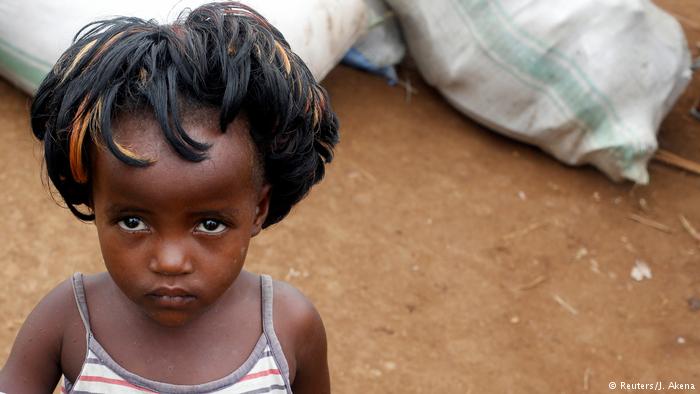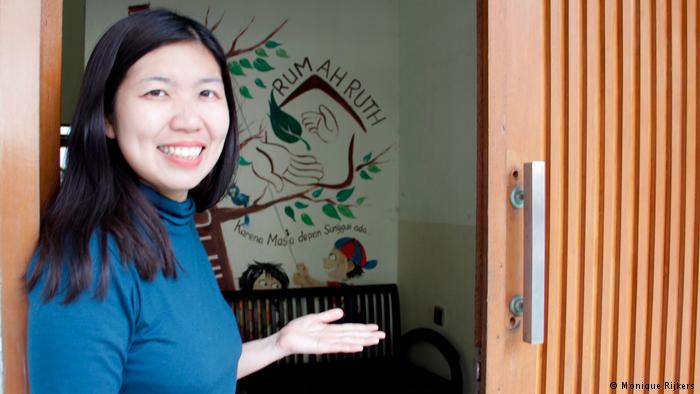The rights group Human Rights Watch says that more than 200 women and girls were raped by members of the Sudanese army in a 36-hour assault on the north Darfur town of Tabit beginning on October 30, 2014. DW spoke to Human Rights Watch spokesperson Leslie Lefkow.
DW: Is this a case of mass rape being used as a weapon of war?
Leslie Lefkow: It certainly seems to be a case of rape being used as weapon of war. We have enough evidence from our investigation to show that the
rape of women and girls in Tabit was deliberate, it was organized and it was clearly an effort by the Sudanese government and security forces to terrorize the residents of this town.
DW: The Sudanese authorities are denying peacekeepers and international investigators access to Tabit. Human Rights Watch spoke to more than 50 residents by telephone. Aren’t witness accounts delivered down the phone difficult to verify?
Leslie Lefkow: It is difficult. It is obviously much better to have access to a location and be able to speak to witnesses and victims in person. This is the usual methodology that we would use for any human rights investigation. Unfortunately, though, there are two factors that made that extremely difficult to do in this case. One is the Sudanese government’s obstruction of access, not only to human rights groups like Human Rights Watch, but also to the UN and
African Union peacekeepers who were trying to investigate the incident.
The second problem in investigating this incident has been the fear of the people in the town. Even speaking on the phone was extremely difficult for many people because they were afraid it would attract attention and reprisals. The Sudanese government has threatened many of the town’s residents with retaliation if they even speak about what happened. So it was extremely difficult research. However, we were able to speak to enough independent sources separately to verify the facts that we have presented in our report and we strongly believe that the Sudanese government has a very profound responsibility and it must take action to protect these people.
DW: Why was this particular town targeted by Sudan’s army?
Leslie Lefkow: Well it is not completely clear why this town was targeted. The Sudanese army and government officials have claimed that residents of the town many have been colluding with rebel groups. The main story that we heard was that there was talk of a government soldier disappearing and that the military blamed town residents for this soldier’s disappearance. But we have no way to prove that that was the reason for the attack. But it was clearly a premeditated and deliberate attack. The organization of the attack, the way that the troops went through the town, going house to house, separating the men, detaining the men, and then raping the women and girls shows that this was not at all a random event.
DW: Human Rights Watch says that the rapes would amount to crimes against humanity if found to be part of a widespread or systematic attack on the civilian population. Do you have any evidence that points in that direction?
Leslie Lefkow: Yes, I think that the evidence we have collected so far – our research so far – points very strongly towards this attack amounting to a crime against humanity. However, we do need to see more investigation by independent and credible investigators. We need to see an investigation team access the town, be able to speak to witnesses and victims in person and conduct a more thorough investigation. We would also like to see, of course, the victims of these attacks get access – immediate access – to medical services. These women and girls desperately need support – both medical and psychosocial support – and the government should promptly allow agencies access so they can provide this kind of service.
DW: The President of Sudan, Omar al-Bashir, is wanted by the International Criminal Court on charges of war crimes and crimes against humanity and genocide in Darfur, but he is still at liberty. Do you see any hope that international justice will one day prevail in Darfur?
Leslie Lefkow: I think one day there will be justice for many of the crimes that have occurred in Darfur. Sometimes justice takes a very long time, longer than we would like, or victims of the abuses would like. But in many cases, it has come albeit very delayed.
DW: The UN is discussing a review of sanctions against Sudan. How effective do you think they would be?
Leslie Lefkow: I think the pressure on the Sudanese has been mixed. On the one hand we have seen sanctions deployed, we’ve seen certain other measures, but these have been inconsistent and I think that the UN Security Council needs to increase its pressure in a unified way and make clear to the Sudanese government that the kind of continued crimes, attacks on civilians, that we see in Darfur are completely unacceptable.
Interview: Isaac Mugabi
Editor: Marjory Linardy
WTO RECOMMENDS
I have pondered for quite some time if I should write this article at all. So much has been said about the safety of women in India following the events on 16 December 2012 in Delhi when six men gang-raped a young woman who later died from her horrendous injuries that I feel the term “gang-rape” is used with an awful ease these days.
On December 16 last year, six men brutally raped and tortured a 23-year-old girl in India’s capital, New Delhi. The incident shook India to the core. Indians finally woke up to the fact that women were unsafe. Mass protests helped in changing the laws against rape, punishing the accused and ensuring justice for the victim, but for her father, time seems to have come to a standstill.
Rape is a woman’s fault, says Bangladesh police
You will probably not believe this. It was hard for me to digest as well, but this police officer repeatedly said that girls should properly cover themselves to avoid being raped. He told this to a female journalist while sitting in a police station.







